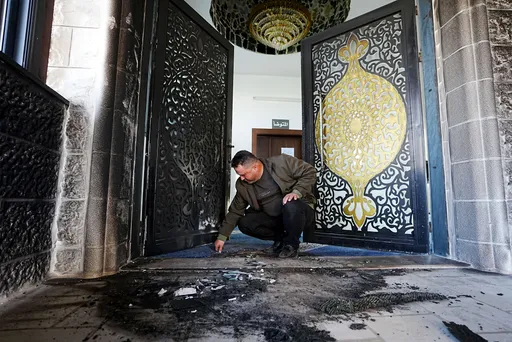The Justice Department has accused Yale University of violating US civil rights law by illegally discriminating against white and Asian American applicants.
The department's finding on Thursday – which Yale rejected as "meritless" – came after a two-year investigation into the undergraduate admissions process at the prestigious Ivy League university in New Haven, Connecticut.
The US Supreme Court has ruled that universities may consider the race of an applicant in making admission decisions but the department said it must be "in certain limited circumstances as one of a number of factors."
"Discriminates based on race and national origin"
"The Department of Justice found Yale's use of race is anything but limited," it said, and was used at "multiple steps of its admissions process."
"The Department of Justice found Yale discriminates based on race and national origin in its undergraduate admissions process, and that race is the determinative factor in hundreds of admissions decisions each year," it said.
"For the great majority of applicants, Asian Americans and whites have only one-tenth to one-fourth of the likelihood of admission as African American applicants with comparable academic credentials," the department said.
"Yale rejects scores of Asian American and white applicants each year based on their race, whom it otherwise would admit."
Assistant Attorney General Eric Dreiband said there is "no such thing as a nice form of race discrimination.
"Unlawfully dividing Americans into racial and ethnic blocs fosters stereotypes, bitterness, and division," Dreiband said.
"It is past time for American institutions to recognize that all people should be treated with decency and respect and without unlawful regard to the colour of their skin."
The Trump administration opened the investigation into Yale two years ago following a complaint by Asian American groups that it was violating Title VI of the 1964 Civil Rights Act, which prohibits discrimination based on race, colour and national origin by recipients of federal funds.
The finding could have a potential impact on affirmative action policies designed to provide representation for marginalized groups who have been denied opportunities.
The Justice Department demanded that Yale agree not to use race or national origin in its upcoming 2020-2021 undergraduate admissions cycle.
Yale denies allegations
In a statement, Yale "categorically" denied the department's allegations and said its admissions practices "absolutely comply with decades of Supreme Court precedent."
"At Yale, we look at the whole person when selecting whom to admit among the many thousands of highly qualified applicants," the university said.
"We are proud of Yale’s admissions practices, and we will not change them on the basis of such a meritless, hasty accusation."
READ MORE:British and American universities come face-to-face with their racist past
Affirmative action programmes
The Justice Department has previously filed legal briefs in support of a lawsuit, brought by affirmative action opponents, accusing Harvard University of discriminating against Asian Americans.
A federal judge in Boston ruled in favour of Harvard last year, saying the school' s affirmative action program advanced a legitimate interest in having a diverse student body.
An appeal of that ruling is pending. The case could eventually reach the Supreme Court.
Affirmative action programs in higher education were meant to address racial discrimination. The Supreme Court has ruled universities may use affirmative action with the aim of helping minority applicants get into college.
US conservatives have said that in helping Black and Latino applicants, affirmative action can hurt white people and Asian Americans.























